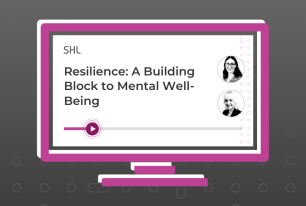How to Manage Stress and Anxiety in the Workplace
Many workers around the globe reported deteriorating mental health ever since the pandemic. Read our tips on how to manage stress and anxiety in this challenging time.
Share
We live in an extraordinary time. Over the course of just one year, we have seen many historical events unfold before us. All these events directly or indirectly affect our lives. For me personally, the prospect of a prolonged state of the new normal is the nadir. I have had enough of the pandemic and I am sad and tired of hearing many other crises starting to pop even before this pandemic is over. And after talking with some friends, colleagues, and acquaintances, this feeling is shared by many.
The prolonged state of the new normal also means that our work and home will amalgamate for the long term. While working from home is proven to significantly improve productivity, there is also a dark side to it. Remote work can also lead to a higher possibility of burnout. Even before the world shut down and remote work became possible, stress and anxiety levels have been increasing in the past few years, and the pandemic accelerated the numbers.
So, what can you do to help yourself to maintain your Zen amid the world and work’s pandemonium? Read further to learn some awesome tips on how to manage stress and anxiety at work—or shall I also say ‘home’?
Why the Stress and Anxiety Levels are so High Today
Ever since the early days of COVID-19, many global citizens reported increasing levels of stress and anxiety. 2020 is also dubbed as ‘the most stressful year’ on record, as the world has entered the state of ‘languishing’. Furthermore, since last year, mental health, alongside DEI, also became one of the most urgent things to tackle in the workplace as workers became emotionally exhausted from everything that has happened. There are four main reasons why the stress and anxiety levels hit an all-time high:
- Inability to disconnect – The main danger of working from home is the inability to mentally disconnect from work as you are living at your office. Back then when many companies began to turn to remote work, I thought how nice it was to not have to commute, to have the freedom to do some non-work activities in between work (e.g. do the laundry, exercise, and even shower), and to not have to dress up when you do not have meetings. Everything sounded amazing until I realized I check my work emails as soon as I wake up instead of commuting, I have lunch at my desk instead of having a break, I work until late evening many times instead of enjoying my private time. I am sure that my story sounds too familiar to many of you. We unconsciously think that switching from work to our private life is easy as we simply need to turn off our laptop and we are at home already. But that ease of access and freedom can also backfire as our work and home boundaries begin to blur.
- Work-life imbalance – As mentioned above, our work and home are physically and psychologically fused. This makes it difficult to juggle between private and professional responsibilities. Those who have children to take care of at home will experience poorer work-life balance more than ever, and that makes parenting extra tough.
- Too many distractions – While being able to do your laundry in between work seems efficient, this actually counts as a distraction. Distractions are not always bad. In fact, taking a short break in between your tasks will help refresh you. However, as nice as they seem, if your pets need love and attention every other hour, your kids constantly talk to you, or the TV is too tempting to be turned on, they may also lower your productivity. Small and frequent interruptions will make it more difficult to concentrate, and you will eventually take longer to do tasks, or even worse, put off challenging work.
-
Lack of supportive environment – While some people thrive working alone, some others thrive when they are surrounded by others. Working at home translates to physical isolation from other colleagues and that means no chit-chat at the coffee machine and no dropping by your colleague’s desk when you have a question.
All four reasons above do not make a great combination. But sadly, this is our reality today. We cannot change what happened and what is going to happen, but we can change how we want to keep our stress and anxiety levels in check.
Since last year, mental health, alongside DEI, became one of the most urgent things to tackle in the workplace as workers became emotionally exhausted from everything that has happened.
Managing Stress and Anxiety Levels
Just like you, I also struggle to find ways to maintain my mental health during this pandemic. But recently, I am determined to take better care of both my physical and mental well-being. Here are some things that I have been practicing and that you can also do:
- Take a long walk in the morning, and even better if you do it right after you wake up. It helps clear your mind and get you ready for the day.
- Have a long breakfast and lunch daily (I try to spare an hour for each of these). Take your time enjoying and digesting your food.
- Talk to your manager, family, and friends about your feelings. If everything is too much, ask your manager for a few mental health days. It is okay not to be okay sometimes!
- Set priorities in your daily tasks.
- Take some short breaks throughout the day. You can do some yoga, walk your dog, jog—whatever it takes to physically separate you from your computer or laptop temporarily.
- Find some hobbies. You can also use this opportunity to learn something new.
- Go on a vacation. You do not have to go out of the country, and instead, you can just take some days off to relax with your loved ones or simply just do nothing.
- Decide at what time you must stop working—and stick to it no matter what unless there is an emergency. If you still end up working over hours, talk to your manager and ask for compensation hours or days.
- Do some breathing exercises and meditate.
- Make sure you get a good night’s sleep every day.
Attention to mental health is a real need, and we all must talk more about it. Knowing how to manage our stress and anxiety levels at work and home is one step. But really taking action to tackle mental health challenges is one step further. Let’s be strong and start to care more about our physical and emotional well-being. Whoosah!
Check out our other tips on managing your mental health at work.









